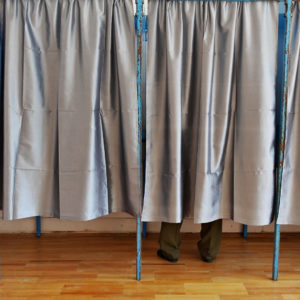The campaign is coinciding with increased political polarization — both major presidential candidates have historically high unfavorability numbers. The American Enterprise Institute (AEI) warned that political uncertainty created by the current political tensions increases the chances of another recession.
“Stock valuations and debt spreads both respond adversely to the increases in uncertainty that seem to come with the election cycle,” the report noted. “The probability of a recession occurring within the next 12 months is roughly twice as high in the U.S. during the month of a presidential election relative to other months.”
AEI reported that market uncertainty tends to be a part of presidential election cycles. The outcome of an election can have a huge impact on markets, because the winner essentially determines economic policy. Political polarization might worsen the problem by motivating both sides to make a more extreme platform.
“Political polarization in the United States continued to march upward,” the report went on to state. “A development that, for reasons to be explored later, likely exacerbates the effect of the uncertainty that arises from elections.”
Businesses and investors do best when they have a sense of what to expect. Both make decisions based on a plan, determined by how the market is likely to look in the future. When markets become more unpredictable, it makes such planning more difficult.
The last recession ended just about seven years ago, but its impact is still being felt by many. Another recession could be very damaging because the economy is not yet fully recovered. Political experts on both sides of the aisle tend to agree the recovery has been very sluggish but their reasoning for why tends to break along partisan lines.

